Idea by
Delphine BORG, Billy GUIDONI
CALMA
Call for ideas 2016
Is our Future still bold ?
Is our Future still bold ?
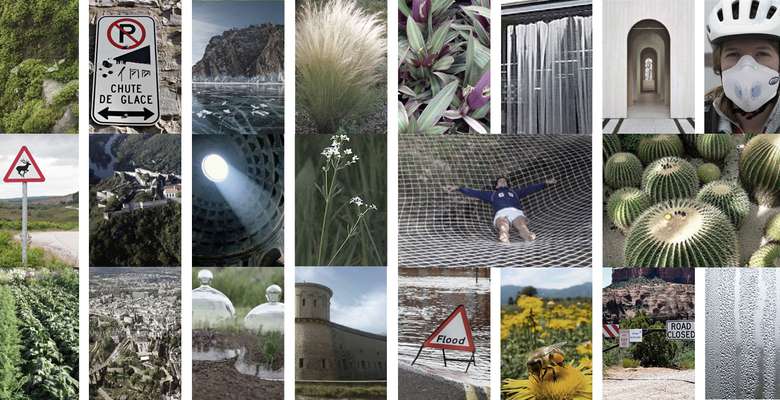
What happened to the harmony between Nature, Mankind and Technology? What became of the Modern ideals?
After many years of financial optimism, institutions appear to have to protect their citizens from rational and irrational fears. Many regulations are created each day ; as a result, freedom of design in architecture is so constrained by norms, that newer realizations show severe consequences. Windows shouldn’t open, circulations should be enclosed, handrails are getting higher, some species are forbidden in cities because of their allergenic potential.
Mankind is already living in virtually hermetic spaces in some parts of the world, totally isolated from nature, as the two entities gradually become more and more fragile because of each other-but a world without interaction between its species just cannot survive.
The installation comprises rooms, reflecting the conflictive relationship between Humans and Nature, highlighting the urgent necessity for an enhanced relationship
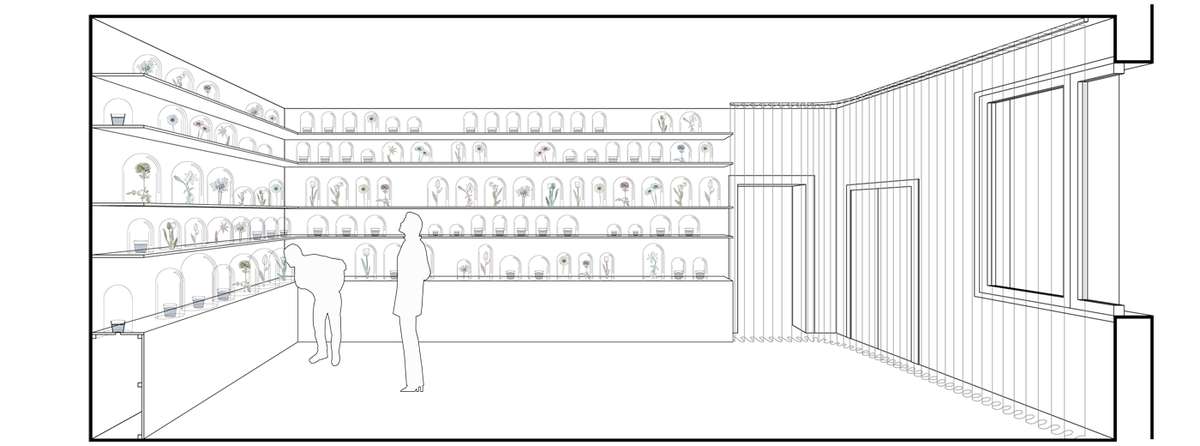
ISOLATION
Set like an antique druggist store, glass globes contain either a glass full of water or a 3D print of a plant, referring to new kinds of fossils, available to replicate through technology, but slowly disappearing from real life. The enclosed water evaporates and condensates against the glass, reminding that the natural elements that make an ecosystem need freedom to interact.
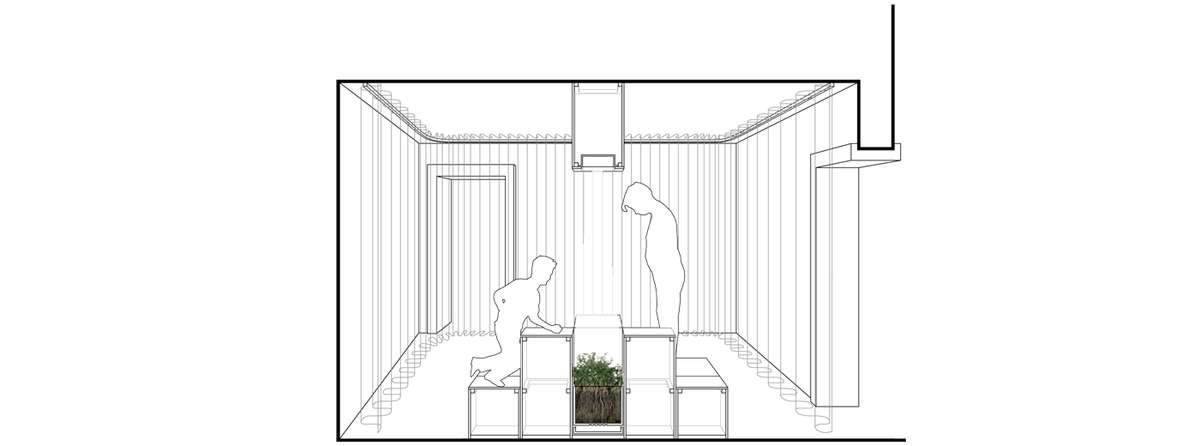
PRESERVATION
Hidden behind a wooden fortress, lit as in an incubator, a common-looking plant is placed at the center of the room, with natural lights filtered through the surrounding curtains. The highlighted plant reveals its true nature : it is in fact a rare, endangered specimen that needs high protection.
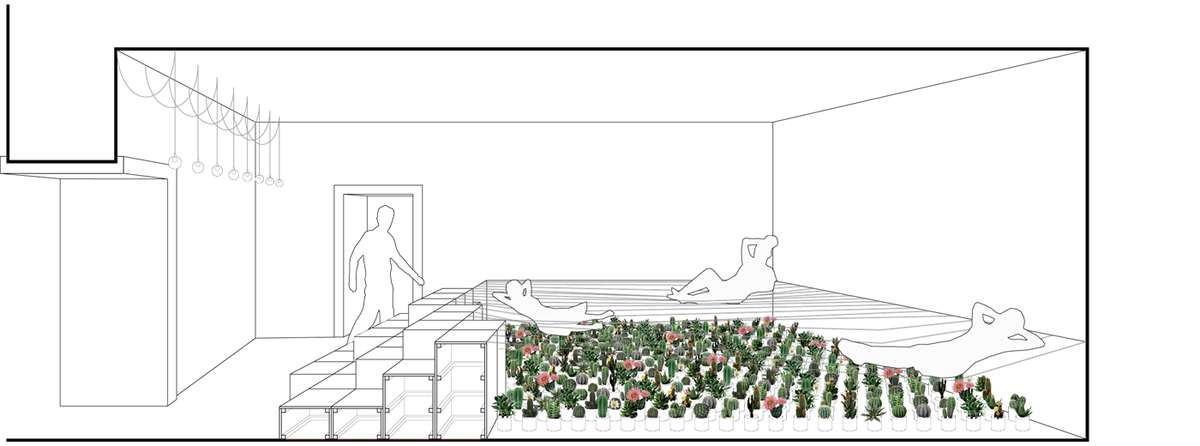
PARTITION
In the rush of the installation, this room offers an opportunity to lay on a large hammock. But one only can enjoy the rest by accepting the idea of being suspended above an army of aggressive plants - here little domestic cacti. Like in a zoo, the installation uses the delicious feeling of fear in a perfectly safe place - as long as the public trusts the technology that protects them.
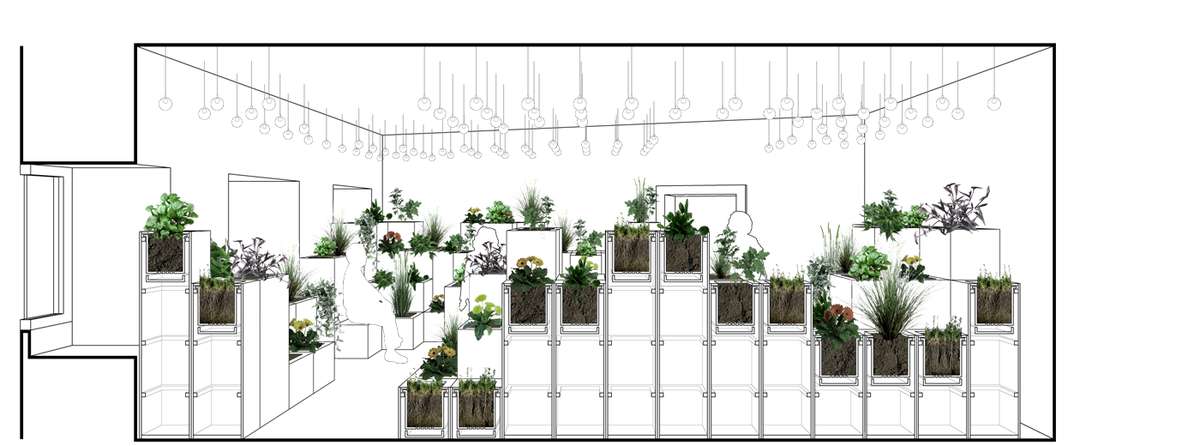
IMMERSION
This fourth room offers the visitors a promenade into what seems like a common indoor garden. However a sign at the door warns that the seemingly friendly, domestic garden, is in fact highly allergenic. People are free to turn back or enter, with an hygienic mask if needed.
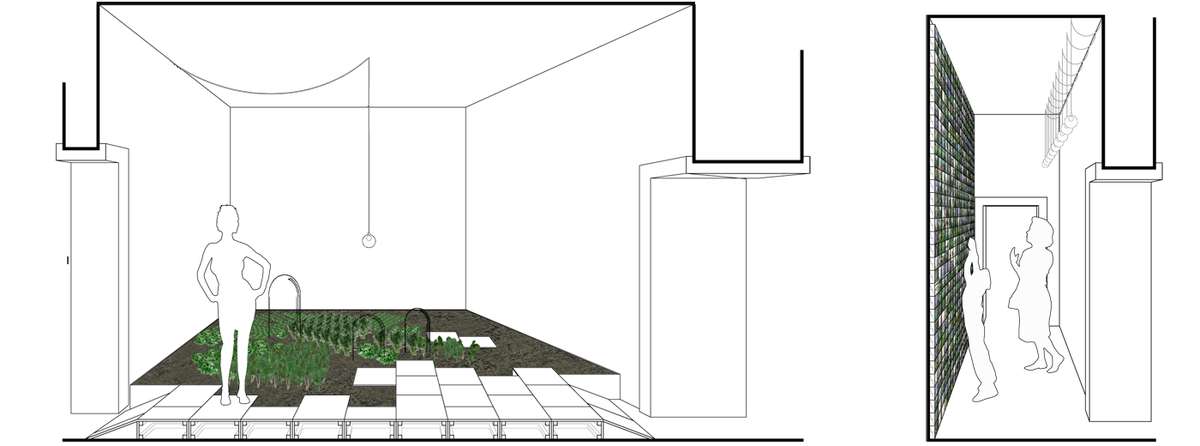
SELECTION
As a metaphor of the city, some specific vegetables/buildings are considered precious, and intended to be maintained forever - while others are disposable, replaceable pieces of the entity.
FRUSTRATION
The room offers postcards picturing deep wild, faraway landscapes which are part of the contrasted relationship people have with nature. The pictures of generous unknown landscapes, partly unreachable, create frustration as people are excluded from experiencing them in real life.
Is our Future still bold ?
Is our Future still bold ?

What happened to the harmony between Nature, Mankind and Technology? What became of the Modern ideals?
After many years of financial optimism, institutions appear to have to protect their citizens from rational and irrational fears. Many regulations are created each day ; as a result, freedom of design in architecture is so constrained by norms, that newer realizations show severe consequences. Windows shouldn’t open, circulations should be enclosed, handrails are getting higher, some species are forbidden in cities because of their allergenic potential.
Mankind is already living in virtually hermetic spaces in some parts of the world, totally isolated from nature, as the two entities gradually become more and more fragile because of each other-but a world without interaction between its species just cannot survive.
The installation comprises rooms, reflecting the conflictive relationship between Humans and Nature, highlighting the urgent necessity for an enhanced relationship
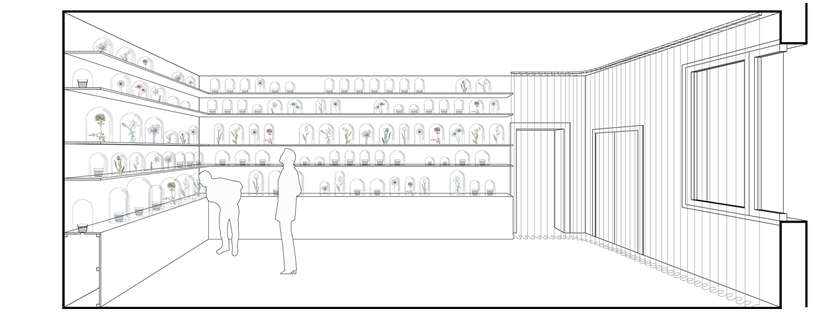
ISOLATION
Set like an antique druggist store, glass globes contain either a glass full of water or a 3D print of a plant, referring to new kinds of fossils, available to replicate through technology, but slowly disappearing from real life. The enclosed water evaporates and condensates against the glass, reminding that the natural elements that make an ecosystem need freedom to interact.
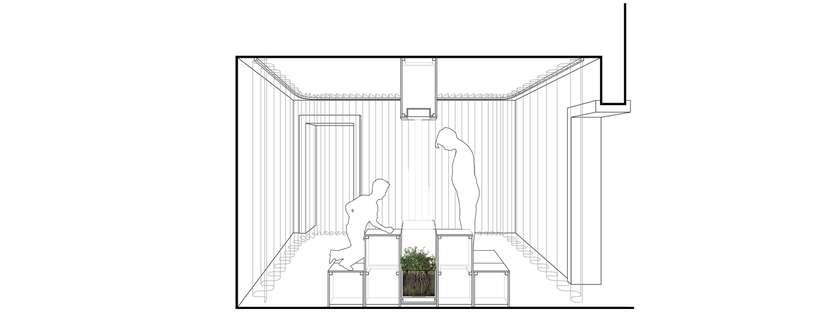
PRESERVATION
Hidden behind a wooden fortress, lit as in an incubator, a common-looking plant is placed at the center of the room, with natural lights filtered through the surrounding curtains. The highlighted plant reveals its true nature : it is in fact a rare, endangered specimen that needs high protection.
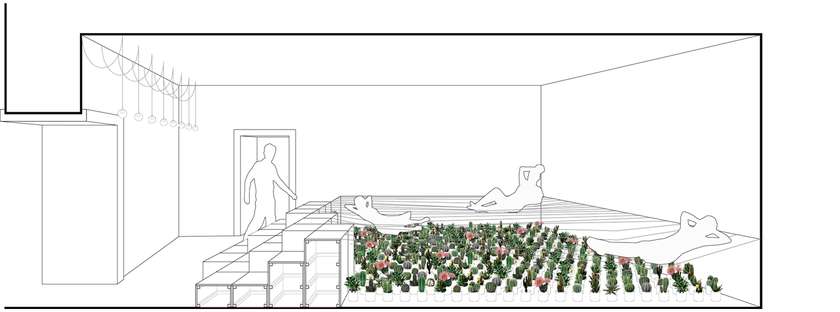
PARTITION
In the rush of the installation, this room offers an opportunity to lay on a large hammock. But one only can enjoy the rest by accepting the idea of being suspended above an army of aggressive plants - here little domestic cacti. Like in a zoo, the installation uses the delicious feeling of fear in a perfectly safe place - as long as the public trusts the technology that protects them.
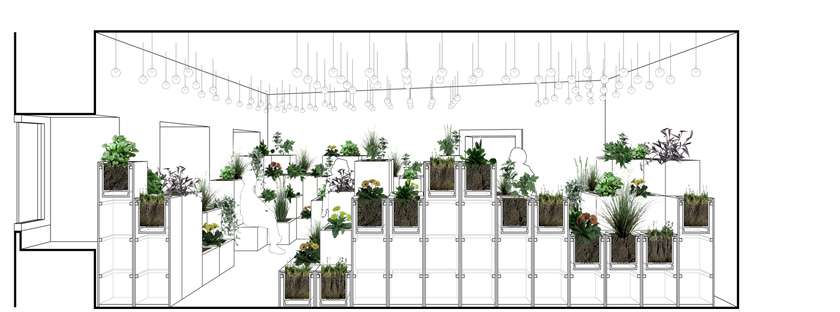
IMMERSION
This fourth room offers the visitors a promenade into what seems like a common indoor garden. However a sign at the door warns that the seemingly friendly, domestic garden, is in fact highly allergenic. People are free to turn back or enter, with an hygienic mask if needed.
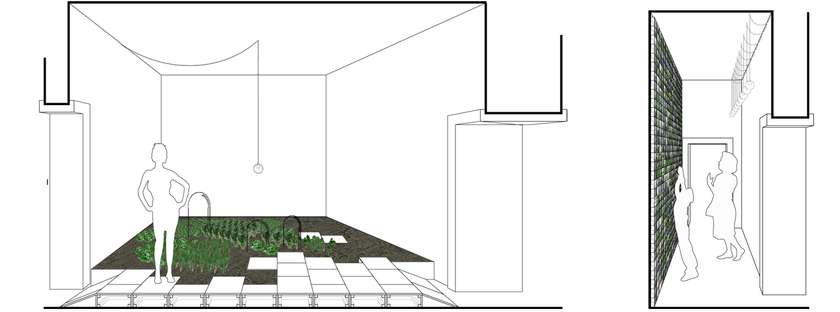
SELECTION
As a metaphor of the city, some specific vegetables/buildings are considered precious, and intended to be maintained forever - while others are disposable, replaceable pieces of the entity.
FRUSTRATION
The room offers postcards picturing deep wild, faraway landscapes which are part of the contrasted relationship people have with nature. The pictures of generous unknown landscapes, partly unreachable, create frustration as people are excluded from experiencing them in real life.